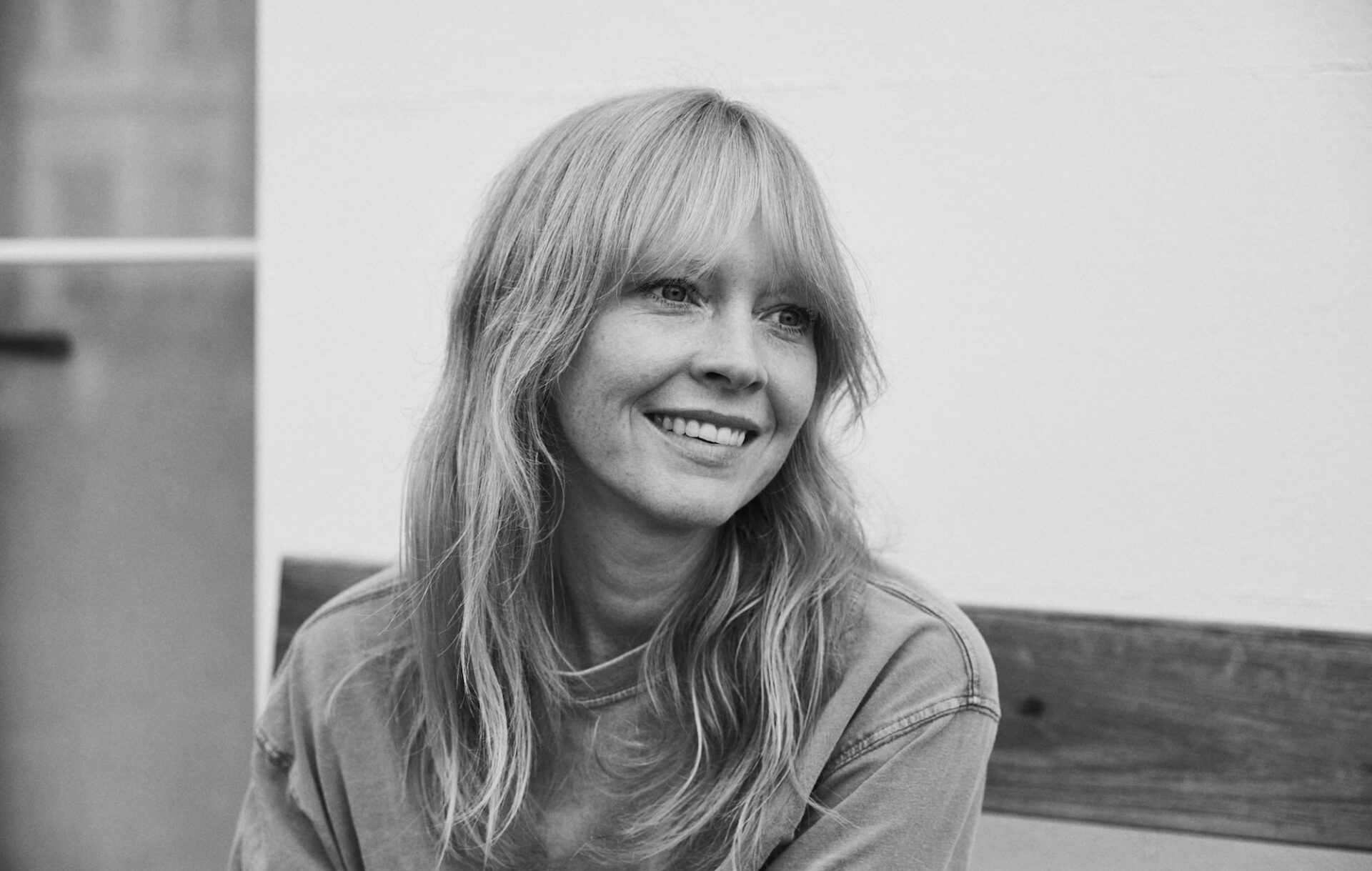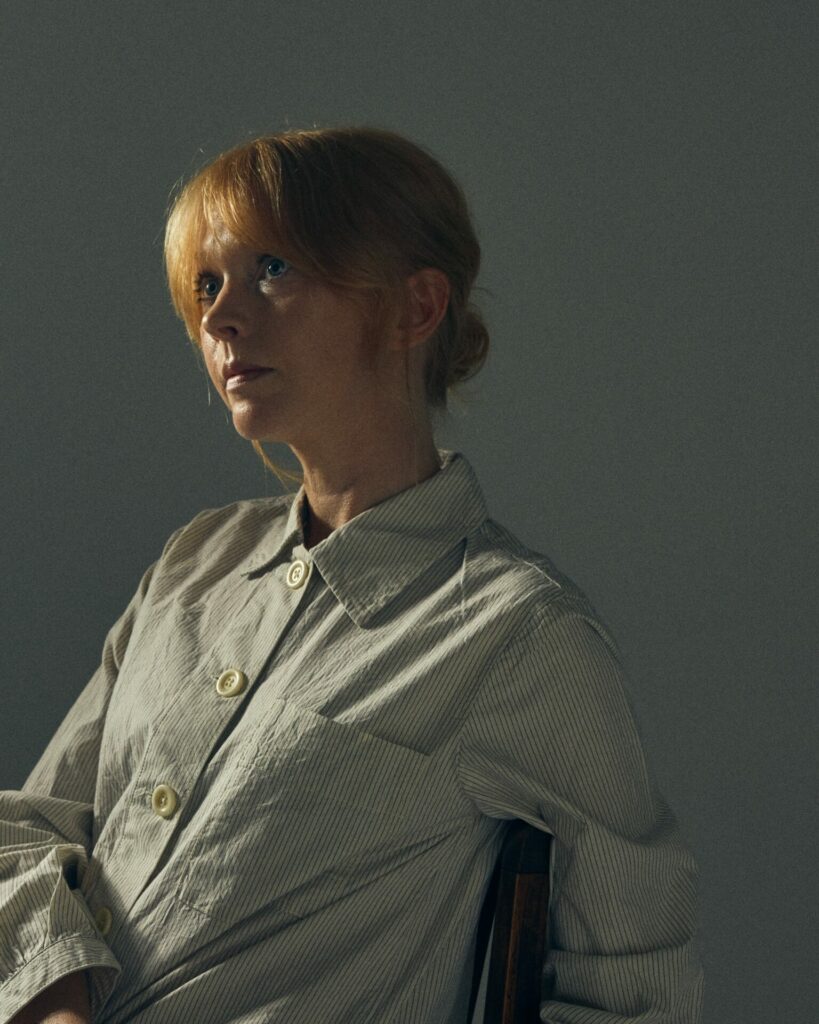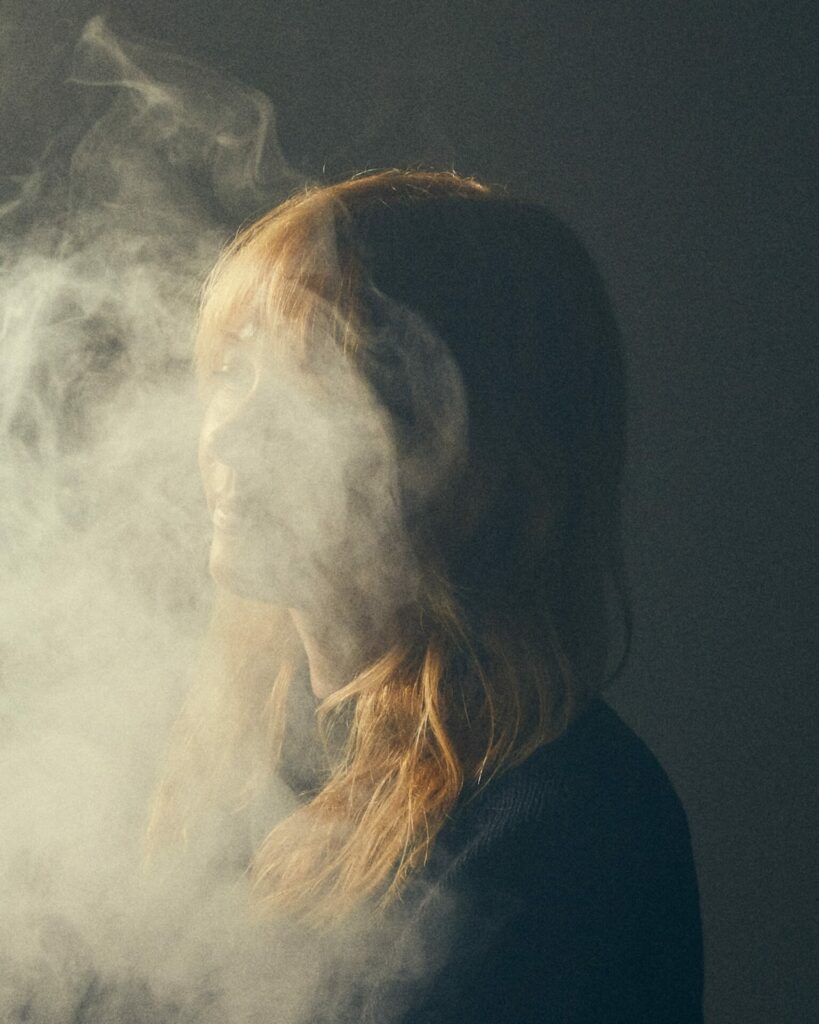Lucy Rose: ‘I saw my body as this terrible thing’
At her home in Brighton, the singer discusses her joyful fifth album, ‘This Ain’t the Way You Go Out’, and the terrifying rare illness that it was borne from.

“I never really know how I’m going to be able to talk about this stuff,” Lucy Rose says at the kitchen table of her Brighton home. Ostensibly, I’m here to talk to the singer about her fantastic fifth album, This Ain’t the Way You Go Out, but none of it makes sense without the context of the life-changing and medically mystifying experience that it was borne from.
After her tour behind 2019 album No Words Left finished almost exactly at the start of the pandemic, the singer planned to take an extended period of time off, during which she became pregnant. Five weeks after she gave birth to her first child in the summer of 2021, Rose began experiencing debilitating back pain, which she was told can be common for new mothers. With the pain continuing to worsen and doctors shrugging off her questions, Rose paid for an MRI scan that revealed she had fractured eight vertebrae and was diagnosed with an extremely rare form of pregnancy-related osteoporosis. A bone density scan was then undertaken, with severe osteoporosis indicated by a score of between -2 and -4; Rose’s result was -4.4. The condition – a weakening of the bones – is most common in women in their 60s and 70s, and Rose’s diagnosis came at 32.
“I’m wondering how talking about it will change my relationship with it,” Rose muses now, speaking about the experience to the press for the third time. “It might come easier, or I might become robotic.” In our conversation, she talks carefully and deeply about her health issues and recovery, quick to stress that this isn’t a sob story, more one of defiance and often joy.
“In the past, I’ve thought about whether you need to suffer for your art,” she contemplates, remembering how after her osteoporosis diagnosis, someone said to her: “Maybe you needed to go through this so you could get the art out of it.” Rose says: “I was genuinely hurt by that. However much I love music, if I could go back in time and not go through it, I would do it a million times over.”
After receiving the diagnosis, Rose attended hydrotherapy sessions and was put in contact with a Facebook support group for women of all ages with the condition. Currently it has a few hundred members and was launched by a woman in Australia. She was also put in touch with an elderly volunteer, via the Royal Osteoporosis Society. “Those two things became probably the most important lifelines for me,” she reflects. “I remember texting the volunteer, and she called me immediately saying, ‘I’m just going out for dinner with all my grandkids and my kids, but I couldn’t not reply to you straight away. I just want to tell you, I’m going to call you tomorrow, and we’ll dig into this together.’” The pair remain in touch, with plans to meet in person soon.

Even before her diagnosis with osteoporosis, joy and lightness was something Rose knew she needed to grasp in her next music. The writing and touring of No Words Left – a sombre album defined by sorrow – left her on her knees and in need of an extended break. “Pouring myself into it the way I did made me realise I couldn’t do it again,” she reflects. “Not to compare and contrast different traumas or anything, but I couldn’t make another record that’s so hard to perform. It’s that really raw part of me, and just full of pain.
“Emotionally it took its toll on me, especially performing it. I think that’s why at the end of that tour, I thought, ‘I can’t do this anymore, because I’m breaking myself every night’. I never talked about what that was about, ever,” she adds, before pausing. “I can talk about it now for the first time, because we’re in this conversation. I suffered from a miscarriage, and it really, really broke me for a long time. I wasn’t able to talk about it and I didn’t want to talk about it on that album campaign in any capacity.”
After slowly recovering and learning to live with her osteoporosis at home, Rose began sitting at the piano in very brief intervals with her son on her lap for as long as her back would allow. “It was about playing things that felt good, and wanting to be able to entertain a baby,” she remembers. “He’d be smashing around on the keys, having the best time. There’s no way I’d see that and then say to him, ‘Hey, let me show you this really sad minor chord!’”
This instinctiveness and joy flows throughout This Ain’t The Way You Go Out, a record inspired by the jazz and instrumental funk that Rose was listening to as her movement slowly returned. Its first single, ‘Could You Help Me’, shuffles along with a jubilant energy, while ‘The Racket’ has a shaggy and loose feel.
Rose says she has always viewed lyrics as “homework,” and was especially fatigued at the idea of having to convey her experiences on the album this time after the draining experience of writing No Words Left. “I was like, ‘how many instrumental songs could I get away with on the album?’” she laughs. Only one – the roomy, Radiohead-like ‘Instrumental I’ – snuck on without words, but the joy and life in the music conveys as much about Rose’s experience as her smart, concise lyrics. “It ain’t over, not even close yet,” she sings on ‘Over When It’s Over’, with her languid vocal delivery and funky bass fizzing full of life.
As her recovery continued, Rose invited her drummer and bassist down to her house for living room jam sessions, where the improvisational and joyful feel of her first ideas was furthered. “From the point of getting my results and thinking, ‘OK, I have no idea what my life looks like anymore, and I don’t know if I’ll get any of my mobility [back]’, to fast forwarding into playing music with two friends in my house, it was a rejuvenating experience,” she smiles.
Calling in a favour from five years ago to use Paul Weller’s studio, Lucy brought her band and producer Kwes to the Surrey location, where they laid down the 12 songs that make up the album in two days – six per day, all tracked live. “If anyone is remixing these songs and asking, ‘What’s the BPM?’ No idea!” she laughs. “It’s completely freeform.”
As finishing touches were put to the record via strings and synths from a slew of collaborators, Rose had a luscious and cheerful world to escape into. “I was still navigating health issues, but would have Kwes dropping an audio file into my WhatsApp. I’d put my headphones on and disappear into this alternate lifestyle,” she says. “I was smiling and grinning, realising that this was my music.”

While the joy of these sessions and the album that came from them still radiates off Rose, she still has to take life slowly and take steps to not exacerbate her condition. As a result, any touring behind the album will be extremely limited. She also shares her concern at the closure of the volunteer-run arm of the Royal Osteoporosis Society, who her husband had raised significant money for by running an ultramarathon. “I had a two hour Zoom with someone from the charity, and I said, ‘What’s going on? Why are you closing this?’” Rose remembers. “I was completely isolated and this was my only lifeline. It’s unimaginable to think about another woman going through what I went through in an even worse place.”
The lack of wider knowledge also worries her. Osteoporosis is found almost exclusively in postmenopausal women, and the bone stabilising drug often offered as treatment comes with the side-effect of infertility. “I asked them that question when I was offered the drug at the hospital, only because I was told about the side-effect through the volunteer,” Rose says, eventually being offered an alternative drug. “If I’d hadn’t had that knowledge, I would have been put on a drug that meant I couldn’t have children ever again.”
After sharing her story in a Guardian interview, Rose was approached by the ROS and told that plans are in place for a new peer support programme. “I’m hoping that by me saying more stuff, it will mean they don’t shut the service down,” she says. “It’s very rare, but there are more of us living with this than people think.”
Alongside an anger at the underfunding of vital services and her unnecessarily prolonged journey to an official diagnosis, Rose carries with her a new defiance and determination. “My relationship with my body has gone through so many twists,” she says. “When this happened, I really had so much hatred for my body letting me down like this, and not enabling me to be the mother I wanted to be. It was heartbreaking and really traumatic, and I saw my body as this terrible thing.”
Through therapy, music and the passing of time, Rose says her feelings about her body and her recovery “went full circle,” which she addresses in the album’s title track. “I wrote a song to apologise to my body and say how brilliant I think you are, because you got through it. You got me through it. You healed. You kept getting out of bed every day even though you were in excruciating pain. Instead of ‘poor me’, it’s now more ‘proud me’,” she says warmly, breaking a smile. “Yeah, that’s how I feel.”
This Ain’t the Way You Go Out is released on April 19 via Communion Records.
